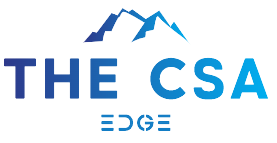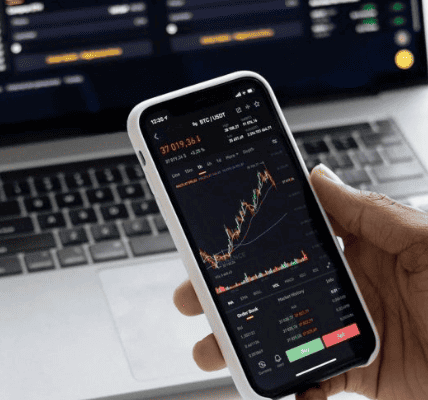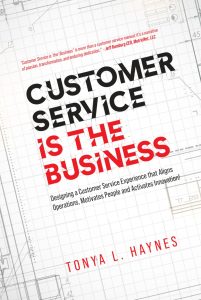Different Types Of Forex Trading Accounts And Choosing The Best One
The Forex market draws global traders’ attention due to its dynamic and lucrative nature. Read More
Choosing an account type that resonates with your trading style and preferences is essential for ensuring a seamless trading experience, and it also affects your trading performance and results. In this article, you will learn about different types of forex trading accounts and the factors to consider when choosing the best account type for yourself. Before getting into the different types of trading accounts, you need to learn about the things that one has to consider for filtering their options. The criteria for selecting a trading account will change based on your trading goals and purpose. For instance, if you are just looking to practise and refine your skills as a trader, then you need to look at different demo account options. But if you are ready to pursue trading as a career or want to trade with real funds, then you will be looking at live account options only. Now two things that you need to consider while choosing your forex account are the trading platform and the forex broker. The features, tools and functionality of the trading platform you choose will have a major impact on the trading process and trading experience. When it comes to the most popular and trusted platform for trading, there are two right now; MT4 and MT5. Millions of traders punch their orders on either of these platforms every single day. Choosing a reliable and supportive broker is just as relevant. You need to make sure they adhere to the rules and offer transparency while operating within legal boundaries. I will suggest choosing a regulated broker as the oversight of a top-tier regulatory body gives you a sense of safety in the case of trading along with the processing of funds while depositing or withdrawing. The trading conditions offered by your broker need to be considered while choosing your trading account. A low-cost broker will allow you to make more profits as you won’t be paying much for the trading cost. The spreads, commission and rollover fee charged by a broker (swap) need to be checked before making a final decision about trading on their platform. You can even find brokers who offer commission-free accounts with a markup on spreads or zero-spread accounts with all charges covered in commission. For those who want to engage in halal trading as per the principles of Islamic finance, you need to find brokers offering swap-free accounts, where you get to open overnight positions without the application of interest differential or swap. In short, you need to consider your personal preferences before choosing a platform, broker and trading account. The first feature of demo accounts is that they are freely available and you don’t need capital for trading on a forex demo account. You won’t be charged for the trades that are executed and you will not be losing any money even when the market moves against you. Because demo accounts are only a simulation that replicates the setup of an actual trading account and offers you the very same tools, features and trading environment that you get on a real account. But the funds that are used for trading on a demo account won’t be real and your profits/losses will not be materialised as the trades you enter are not being placed in the actual market. The purpose of a demo trading account is to serve as a platform for learning and testing as beginners can hone their skills in a risk-free environment while also getting a chance to test their strategies in a realistic setup as demo accounts allow you to trade in real-time market conditions. Even experienced traders can utilise a demo account for testing a new strategy or trying out EAs and bots in case of automated trading. The process of opening a demo account is quick and easy as you won’t have to do much verification that is normally done while opening a real account. Just as the name suggests, a micro account is a smaller-sized account which allows you to place trades in the smallest lot size available which is a micro lot (1000 units of currency). In this type of account, you will be trading for real by risking real money but your risk exposure will be minimal with smaller position sizes which reduces the stress and complexity of trading while keeping things real. Brokers who provide micro accounts allow you to start trading with a minimum deposit of $10 in most cases. This is perfect for small retail traders who are keen to get some practical experience in trading but are reluctant to take risks due to inexperience or lack of funds. Newbie traders can make good use of a micro account while gathering experience and accumulating enough funds to open a normal-sized account. They are better than demo accounts when it comes to understanding the impact of trading costs and real-time order execution. Because demo account orders are not queued or re-quoted as they are set for immediate execution irrespective of the market conditions. But micro account orders will only be executed when a matching order is found and they also allow you to learn more about the emotional aspect of trading with the risk being real. A standard account is also referred to as a regular trading account and it is the most common and popular type of forex account in use. On a standard account, you will be placing trades in a standard lot size (1,00,000 units of currency) and this is the type of account that allows you to earn enough profits as a full-time or part-time trader. You need to pay a lot of attention to the trading conditions, order execution and platform functionality while selecting a broker for opening a standard account. As I said earlier, all these aspects will directly impact your trading experience and trading results. You get a lot of options to consider even in the case of a standard account. These options are based on trading platforms offered by the broker along with trading conditions. The standard account offered by one broker can be very different from the standard account of another broker. Fast order execution, tight spreads, low commission and high leverage are considered to be solid criteria for finding the best standard trading account for yourself. Don’t forget to check if the broker supports your trading style or strategy by going through their terms and conditions. I already mentioned Islamic accounts earlier but here we will review this account type in detail. Islamic accounts are specifically designed to meet the needs and requirements of Muslim traders who are unable to trade on regular trading accounts due to the application of interest differential known as swap. Islamic finance strictly prohibits interest-based transactions which makes forex trading haram for Muslim traders while keeping a trade position open overnight as they are subject to swap or rollover fees. Islamic accounts solve this issue by providing Sharia-compliant trading conditions and they are also known as swap-free or interest-free accounts. But you will have to pay a flat rate admin fee for the trades that are kept open overnight as a cost of keeping the positions open for an extended duration. This admin fee will vary based on the currency pair chosen and the duration of trades. This type of admin fee is permissible as this is not related to interest rates of currencies. Other than the elimination of interest, Islamic finance also talks about uncertainty in financial transactions and gambling that are against the rules. Thus Islamic accounts may restrict the available trading instruments and leverage to confirm these standards along with equal sharing of risk and rewards. To sum it up, different types of trading accounts are added to promote diversity and inclusion in the forex market. Brokers are leaving no stone unturned to ensure customer satisfaction and this allows us to access the market on our terms and carry out trading in a favourable environment by choosing the most suitable account type and broker platform. Things to know before Choosing an account type
Types of Forex Trading Accounts and how they differ from each other
Demo Account
Micro Account
Standard Account
Islamic Account
Final Thoughts






